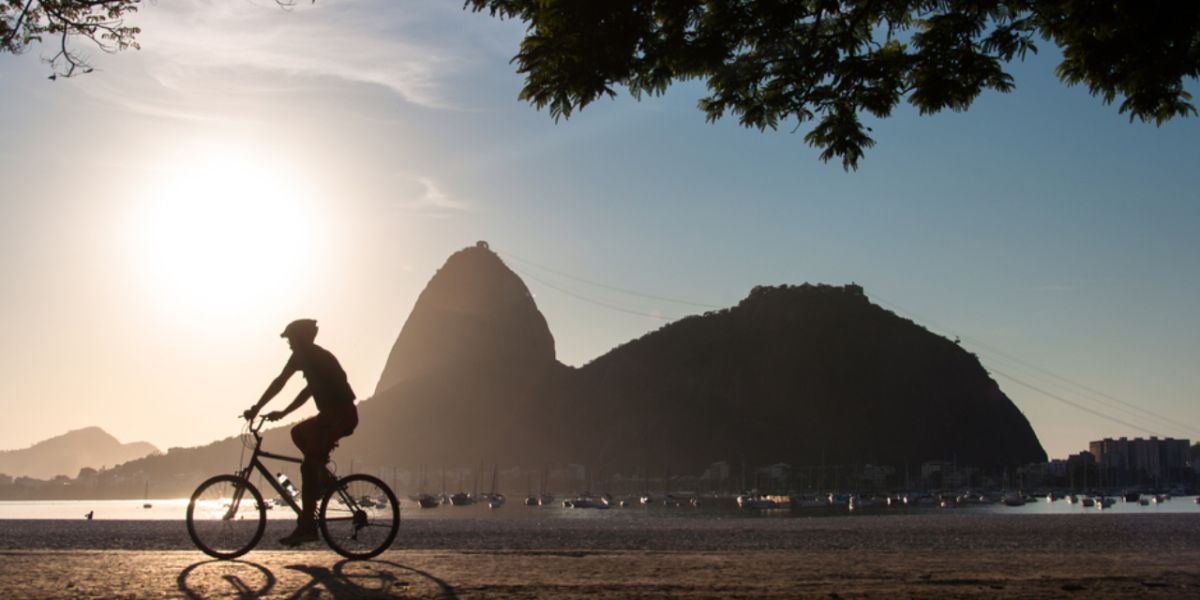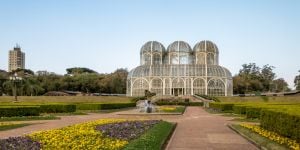
Have you always dreamed of dancing to the rhythm of a Brazilian carnival? Do you wish to enjoy the sand and the tropical sun, or perhaps to take a riverboat cruise along Brazil's 7,500-kilometer coastline? All of these activities await you here. Brazil is also very culturally diverse, more so than most people realize, and offers many festivals and museums that celebrate its history and roots. Food, drink, and music vary from region to region. Let's explore!
Carnival
Many cities in Brazil celebrate Carnival. Rio de Janeiro and Salvador, in particular, are well-known worldwide for their street parties that go on for many days and nights. Each city has its take on Carnival. In Rio, the music is traditional samba, and competition between the various samba escolas (schools) is intense. In Salvador, large trucks called trios eletricos crawl through the streets, with famous musicians performing from atop them. The trios even sell beer and have restroom facilities!
Carnival is a national holiday. The exact days float each year. It's officially held the Friday preceding Ash Wednesday, although parties often extend on either side of the official dates. If you plan to attend Carnival, be sure to book your flights and accommodation well in advance, and be prepared to pay high prices. But a true Brazilian Carnival is a once-in-a-lifetime experience!
Beaches
If you want to enjoy the tropical sun, blue lagoons, and fine sugary sand, then you'll be delighted by Brazilian beaches. The most famous beaches in the country are Copacabana and Ipanema, located in Rio de Janeiro's South Zone. Once there, you can swim or enjoy numerous water activities such as board surfing, stand-up paddling, and bodysurfing. Or you can relax under your beach umbrella and watch as the people stroll by.
Brazil has scads more beaches though, each a bit different, with something for every taste.
Good to know:
To express the idea “It's not my cup of tea”, a Brazilian says, “Não é minha praia”. Translated, it means “It's not my beach”.
Useful link:
Sports
Brazilians love their sports. They enjoy spectator sports, but also actively enjoy playing sports too. Often, you'll find Brazilians playing sports at the beach. But the most popular sport in Brazil is soccer (futebol).
Brazilian heritage
Brazil is a former Portuguese colony, but its culture today is multi-ethnic. Sharp regional differences persist, making Brazil a fascinating country to explore. It's often been said that there's no distinctly Brazilian face, and it's undeniably true.
The Amazon basin dominates the country's north, and it's here that you'll find the highest percentage of people with indigenous blood. This area also boasts some of Brazil's oldest cities and wonderful examples of colonial architecture. Its Festas Juninas (June Parties) are interesting displays of folk dance, music, and myth.
The north blends into the northeast, which is renowned for its beaches and seafood, but it also has a fascinating history. This area was contested by the Dutch, who had a presence here for generations, and you may come across blondes and gingers on the streets of Natal. In Recife, you'll find many examples of Dutch colonial architecture.
From Brazil's earliest days, slaves were brought from Africa. Their descendants can be found throughout Brazil today. But nowhere is the African culture more evident than in Salvador, where African influences can be seen in the food, clothing, and food.
The Portuguese influence is, of course, evident. Rio de Janeiro was the capital of Brazil for many years, and you can still see that influence by visiting the governor's palace. In nearby Petrópolis, you can visit the former residence of Emperor Dom Pedro II, which has been transformed into a museum preserving imperial jewelry and furniture. You can also visit the Gothic cathedral where the imperial family has been buried.
Each region of Brazil is a bit different. In São Paulo, you'll encounter many people with Italian surnames and the best pizza in Brazil. You'll also find the world's largest Japanese colony outside of Japan. In the South especially, you'll find many of German ancestry, and come across celebrations of German dance and beer. Curitiba, a bustling city of two million, is very culturally diverse, as shown by the names of its parks: Portuguese Woods, German Woods, Japanese Gardens, and the Polish Memorial, to name but a few.
Good to know:
Brazil truly has one of the world's most diverse and rich cultural heritage.
Museums
Brazil has many fine museums. The Museum of Tomorrow in Rio, built in anticipation of the 2016 Olympic Games, is fascinating in concept and layout, and well worth a visit. Sao Paulo has perhaps more fine museums than any other city in Brazil, including the Museum of Art and the Museum of Modern Art. In Curitiba, the Oscar Niemeyer Museum honors the renowned architect who designed Brasilia, but also displays works by other artists.
Don't overlook some of the fine smaller museums. These include the curious home of inventor and early aviator Santos Dumont in Petropolis, the Science and Technology Museum in Porto Alegre, and the Inhotim Museum of contemporary art in Brumadinho in the Brazilian state of Minas Gerais.
Walks
Sometimes, the best way to experience a place is to walk around. Brazil is truly blessed with a wide variety of beautiful nature, and nowhere more so than in Rio de Janeiro. You can have a panoramic view of downtown and of the South Zone by taking a cable car, which will take you to the top of Sugarloaf Mountain.
Good to know:
Most people aren't aware that it's possible to ascend the lower hill next to Sugarloaf, Morro da Urca, by a hiking trail. At the traffic roundabout, the ticket office will be to your right and the trailhead to your left.
The Botanical Garden is a wonderful place to find shade on a hot afternoon. Nearby, Parque Lage was the residence of a business magnate but is now open to the public. The grounds are very interesting, with many little nooks.
Boating excursions in Brazil
As Brazil has so many miles of coastline, you may want to explore a bit by boat. You might opt for a cruise on Guanabara Bay, one of the largest bays in the world. Several islands pepper the bay, among which are the Fundao, Governor, and Snake Islands. During your journey, you can discover the region's flora and fauna, enjoy a swim or a dip, and even fish.
A couple of hours north of Rio lies the Lakes Region. From here, you can find inexpensive boat excursions. The best leave from Arraial do Cabo and visit several beaches, some of which (such as Praia do Forno) are only accessible by boat.
Amusement parks
Brazil has many attraction parks you can enjoy with your family during your free time. Beto Carrero World, located in the state of Santa Catarina, is the largest amusement park in the country. It consists of several thematic areas: Nations' Avenue, Pirate Island, the Fantasy World, and a zoo. The Hopi Hari, located in São Paulo, consists of five thematic areas including the Wild West, France, Europe, and areas inspired by Egyptian, Aztec, and Mayan civilizations.
You can also visit Mirabilandia, located in Pernambuco, which has some 30 attractions, including a giant rollercoaster.
Wine and gastronomy
Brazil has a nascent wine industry in the Rio Grande do Sul, its southernmost state. While the reds are so-so, many of the whites and especially the spumantes are quite good. And as this area was settled principally by Germans and Italians, you'll find both cuisines represented. If you visit during the winter (June to August), watch for wine and cheese festivals.
Do note that Brazil is the third-largest producer of wine in all of South America, which means they do have some good bottles to drink.
Sundays in Brazil
Brazil is in many ways a traditional country. Sundays are often still considered a family day. It's quite common that the extended family gathers for a late lunch, watches a soccer match on television, or takes a nap in a hammock outback.
We do our best to provide accurate and up to date information. However, if you have noticed any inaccuracies in this article, please let us know in the comments section below.








